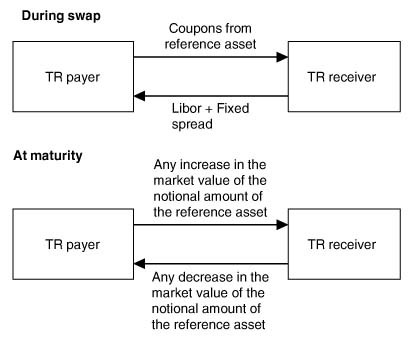
Contents:


Preferential shareholders have the right to receive dividends before an equity shareholder. Note that if a certain company is running in losses and is unable to issue dividends, preferential shareholders will also receive no extra bonuses. Get an overview of issued share capital and its importance in finance. Learn its definition, the difference from authorised capital, presentation and its impact on a company. It signifies the amount of money paid by shareholders in response to the call made by a company.
In this context, share capital means the total amount raised by the company in sales of shares. On issuance of shares, the company calls upon its shareholders to pay a part of the capital. Thus, called-up capital offers more flexibility in the investment and payment terms.
Constellation Expects to End Year Comfortably in The Upper End of ....
Posted: Thu, 04 May 2023 11:11:13 GMT [source]
As per Section 43 of the Companies Act, 2013, the share capital of a given company limited by shares are of two types, Equity Share, and Preference Share. Rupee rises 10 paise to 81.72 against US dollarThe Indian rupee rose 10 paise to 81.72 against the US dollar in early trade on Tuesday, supported by a weak US currency and increased foreign investment. Brent crude prices falling below $80 a barrel also helped, in addition to the opening of the forex and equity markets after being closed for "Maharashtra Day".
This particular capital cannot be called by the company unless it is winding up or being liquidated. A reserve capital can be created by passing a special resolution with a 3/4th majority vote in its favour. Also, such share entitles shareholders to receive paid-up capital before common shareholders.
As per section 2 of thecompanies Act,2013the authorized capital has to be mentioned in the MOA and AOA. In addition, stock options can be issued to employees and others to increase a company share capital without having to sell new shares. Consisting only of equity shares and sans preference shares, this class carries the maximum benefits and also maximum losses. If a company’s shares are doing well on the Stock Exchange, shareholders will benefit as their company will pay extra dividends. The total capital that a corporation accepts from its investors by issuing shares that are listed in the firm’s official documents is known as authorized share capital. Because a corporation is registered with this capital, it is also known as Registered Capital or Nominal Capital.
Shareholders will be asked to pay a certain amount whenever they purchase shares. The total amount thus collected constitutes a company’s called-up capital. If the authorised share capital is increased under any situation, the concerned regulators must be notified. When people voluntarily contribute money to an entity’s owned corpus, they automatically become co-owners of that entity.
A company must pay preferred dividends irrespective of cash flows like debt instruments. The company may accrue dividends and pay preferred equity holders at a later date or upon maturity. The company must give notice each of the equity shareholders giving him the option to buy the shares offered to him.
A company with a low paid-up capital may have to rely on debt to finance its operations. Conversely, high paid-up capital signifies less reliance on borrowed funds. Moreover, the company may only require payment of part of the share's entire face value. The information, product and services provided on this website are provided on an “as is” and “as available” basis without any warranty or representation, express or implied. Khatabook Blogs are meant purely for educational discussion of financial products and services. Khatabook does not make a guarantee that the service will meet your requirements, or that it will be uninterrupted, timely and secure, and that errors, if any, will be corrected.
Therefore, it is recommended to make prudent stock market investments. In addition, many individuals are confused by the contrast between shares and share capital. The share capital of a business is the money produced via the sale of stock to investors, while a shareholder's share is the proportion of the money paid to the firm.
Regardless, it must be noted that the relevant meaning of share capital depends entirely on the context. A “Share capital” or “company share capital” is the total amount of money raised from investors from the time it was first established. Depending on the context, the term share capital can mean somewhat different things. Accountants have a much more narrow definition of their rules for defining public company balance sheets.
When you are an investor with equity shares in a corporation, those shares also serve as collateral. So you can use them as collateral if you need a loan to meet your necessities. The equity shares of a corporation demonstrate its creditworthiness, which facilitates the loan approval process.
Any change in the authorized capital requires shareholder approval since an increase in the authorized capital may shift the balance of power between the shareholders and other stakeholders. Authorized share capital refers to the maximum number of shares a company may issue. The Memorandum of Association limits the authorized capital to a fixed amount. Authorized share capital is more than the total outstanding shares.
Badger Infrastructure Solutions Ltd. Announces Strong 2023 First ....
Posted: Wed, 03 May 2023 21:58:34 GMT [source]
However, obtaining share capital definition investment might be a longer and more difficult procedure. To receive the equity you often require involves the correct connections and an effective pitch deck. Such assets may include land, machinery, Intellectual Property, plants or mills and any similar unmovable assets. A company may set a fixed date by which all outstanding dues are to be settled. Note that the terms mentioned during the share issue is final and no organisation can breach those pre-set conditions.
It must be remembered that the size of the share capital of a company tends to change with more public offerings. The sale of shares to the general public generates funds for the business and is a primary source of capital finance. Therefore, companies must carefully evaluate all possible alternatives while making financing decisions. Uncalled share capital appears in the company's contingent liabilities. It represents the balance amount after the adjustment of the called-up capital from the total shares allotted. A company may increase its authorized capital for several reasons, such as acquiring another company or employee stock options.

The company’s unissued stock capital will be between the two figures. At the moment of sale, both common and preferred stock shares are valued at their par value. The “par” or total price is a fictitious figure in contemporary commerce. “Additional paid-in capital” refers to a corporation receiving more than the par value.
The March quarter saw Asian companies beat net income expectations by 3%, according to Refinitiv data. While Indian equities drew the biggest amount of foreign money, Taiwan experienced $1.73bn worth of net selling, with Thai equities seeing outflows of $231m. Reserve capital is defined as that uncalled capital owned by an enterprise that can be issued only in the event of that company’s dissolution of business – regardless of the reason. If a certain firm is not going ‘under’, it cannot issue its reserve capital. One reason why every share issue has terms and conditions is to ensure that companies do not resort to mala fide practices while a certain amount is yet to be paid by a shareholder. Usually, uncalled capital constitutes a large portion of share capital.
Where a company buys back its own securities, it shall extinguish and physically destroy the securities so bought back within seven days of the last date of completion of buy-back. The Company shall ensure that the reserves created by revaluation of assets are not used for the issuance of Bonus Shares. Since, a company does not have to issue all of its Authorized Share Capital at once, it may further issue Share Capital in the future, depending on its financing requirements. Below accounts are used for other internal purposes and should not be used to transfer money to Upstox.
Investors In Start-Ups And Probability Of Them Being Classified As ....
Posted: Wed, 03 May 2023 14:47:53 GMT [source]
Only through a special resolution with a 3/4th majority vote in favour, a company can establish reserve capital. The part of Called-up Capital which is paid by the shareholder is called Paid-up Capital. It is not mandatory that the amount called by the company is paid by the shareholder. The shareholder may pay half the amount of the called up Capital, which is called as Reserved Capital. As the name reserve means to keep some amount in the treasury of the company.
A company’s shares that are sold serve as a source of investment for the company as well. Though many promoters and investors contribute varying sums to the Company’s capital yet, there is no separate Capital account for each investor or promoter. Hence, there is a single consolidated Capital Account which is called the Share Capital Account. Notice to share holders prior to the issuance of sweat equity shares.
It is significant, especially in case of liquidation or winding up. On its balance sheet, a corporation may choose to make a new stock offer. The company may reduce this capital to zero by paying back some of the shares. This refers to the part of a company's reserves that cannot be distributed as dividends.
Registered capital/nominal capital/authorized capital is known as the one to be decided at the incorporation of a company. The limit of Authorized Capital is decided by the Board on behalf of all shareholders, who have agreed to set it when they registered the firm. The firm’s shareholders can expand this limit by taking appropriate action to issue more shares, but they are not allowed to issue shares at a value higher than the authorized capital in any case. Share capital is reported by a firm in the shareholder's equity section on its balance sheet. Depending on the fund source, the information may be listed in separate line items. Those usually include a common stock line, another one for preferred stock, and the third one for additional paid-in capital.
Control and ownership – Share capital bequeaths voting rights to investors. Creditworthiness – Investors and lenders prefer companies with a minimum level of share capital. An overly leveraged company may raise concerns for liquidity or stability. Fixed Cost – Contrary to debt instruments, share capital restricts the company's fixed cost. While the company must pay interest on loans or fixed instruments, the dividend payment is voluntary.
© Copyright 2021 by Get Smart Retirement Group| Design by Fitser